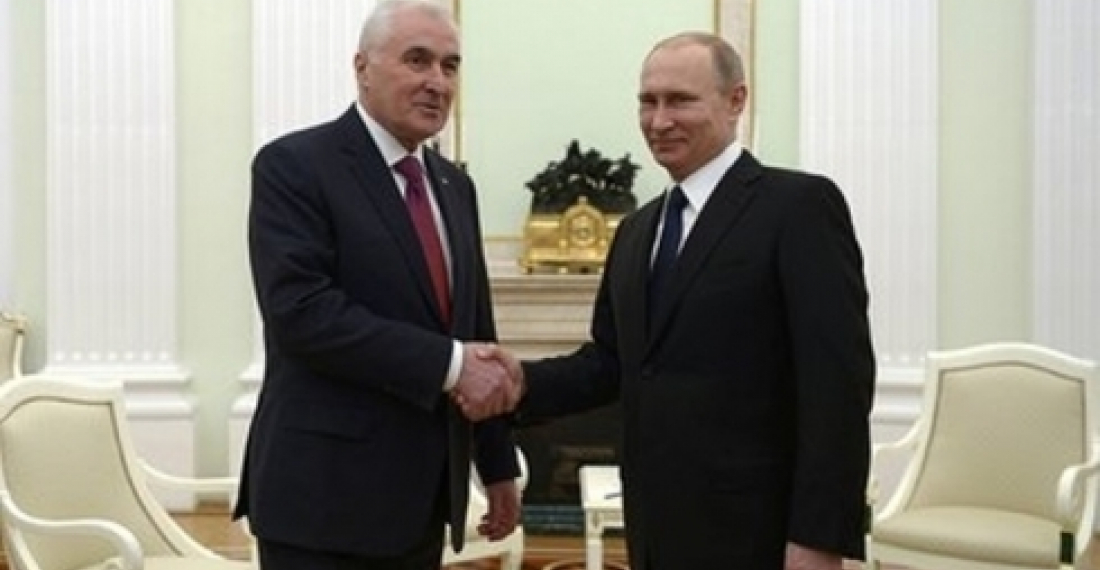Russia and South Ossetia have signed a treaty "on Alliance and Integration" at a ceremony at the Kremlin. The agreement is for 25 years with the possibility of subsequent ten-year extensions.
"Under the Agreement, the two countries will establish a common defence and security space, allow free movement across the Russia-South Ossetia border, integrate their customs services, develop cooperation between their interior ministries, and simplify the procedures for obtaining Russian citizenship. The agreement also covers the social dimension, including pensions" said the website of the Russian President.
Russian media reported that the treaty envisages forming a common defense and security space between Russia and South Ossetia. Separate units of South Ossetia's military forces will be integrated into Russia's Armed Forces. Military aggression against one country will be considered an act of aggression directed against the other country as well. The treaty also envisages free border crossing between Russia and South Ossetia, taking into account restrictions in place for security concerns. The document stipulates that Moscow and Tskhinval will conduct a coordinated foreign policy. Russia will assist South Ossetia in urging more countries to recognize the republic's independence.
Russian President Vladimir Putin praised the alliance and integration treaty with South Ossetia, calling it "a landmark document." "Today we made another important step towards further consolidation of partnership ties," Putin told reporters after the talks with, Leonid Tibilov. Putin said one billion rubles ($16 million) will be allocated from Russia's 2016 budget to the implementation of the Treaty on alliance and integration between Russia and South Ossetia. "The implementation of the treaty will be supported by considerable financial resources. In 2016, around 1 billion rubles will be allocated to South Ossetia for these purposes," Putin told journalists. "In 2008-2014, the total amount of financial support for the republic stood at 43 billion rubles," the president noted.
Commonspace.eu political editor said in a comment that "in practice the new treaty changes nothing from the reality that has existed since August 2008 when Russia de facto declared a protectorate in South Ossetia. The timing of the treaty however is aimed at exercising maximum pressure on Georgia as it moves with the process of becoming an associated state with the European Union. Even the signing ceremony was timed to coincide with a session of the Geneva Process where Georgia, Russia and the self-declared entities of Abkhazia and South Ossetia are meeting under the auspices of the EU, the OSCE and the UN. At the same time the Russian Government does not want to close completely the possibility of rapproachment with Georgia in the future. So although the treaty includes the phrase "integration", Russia has stopped short from annexing South Ossetia outright. It is also interesting that the amount of financial assistance Russia is offering South Ossetia this year amounts to only $ 16 million. Integration it seems does not increase generosity."
source: commonspace.eu with kremlin.ru and itar-tass .
Photo: President Putin with the leader of South Ossetia, Tibilov, in Moscow on 18 March 2015 (picture courtesy of the Press Service of the president of Russia).







